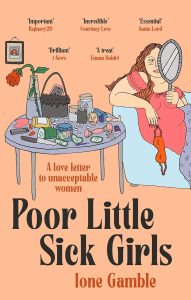Comedy
Baby Booted From Arj Barker’s Show Signs On For Next Season Of Dancing With The Stars
In entertainment news, the baby who was this week booted out of comedian Arj Barker’s Melbourne International Comedy Festival show has been signed by agent to the stars Max Markson and announced as a contestant on Channel 7’s Dancing With The Stars.
”What a great get by the network, this kid is hot and will surely tear up the dance floor,” said entertainment reporter Hugh Gossip. ”Next year’s Dancing With The Stars is shaping up as an all-time classic for Channel 7.”
”What with the baby, Ben Roberts-Smith and Bruce Lehrmann. What a truly golden age for reality television.”
When asked how a baby who can’t even walk will be able to dance on a reality show, a Channel 7 executive said: ”It’s a very clever kid, it’ll work it out.”
”Besides, that’s not our biggest problem, we need to figure out how to get Bruce to dance whilst potentially in prison.”
”Hopefully Bruce’s cell mate is nimble on his feet.”
”Now, if you’ll excuse me, I need to go and see a guy about getting some motivational powder for one of the contestants. I hope I don’t mix up the baby powder with the coke.”
Mark Williamson
@MWChatShow
You can follow The (un)Australian on twitter @TheUnOz or like us on Facebook https://www.facebook.com/theunoz.
We’re also on Patreon: https://www.patreon.com/theunoz
The (un)Australian Live At The Newsagency Recorded live, to purchase click here:
Fury After Comedian Kicks Out A Couple Trying To Conceive During MICF Show
Drama has erupted over an incident that occurred at a Melbourne International Comedy Festival (MICF) show this weekend. Where a couple were kicked out by the comedian performing, after being caught trying to conceive a baby during the show.
”We weren’t hurting anyone, the comedian totally over-reacted,” said one half of the couple. ”It’s not like we weren’t paying attention, we were doing it doggy style, with both of us facing forward.”
”These comedians are too sensitive.”
The move to have the couple kicked out of the show has divided the clowns that populate Sky News after dark.
With Paul Murray raging on about woke comedians, Andrew Bolt raging on about woke audience members and Caleb Bond raging on about not being able to get a laugh or a root.
Mark Williamson
@MWChatShow
You can follow The (un)Australian on twitter @TheUnOz or like us on Facebook https://www.facebook.com/theunoz.
We’re also on Patreon: https://www.patreon.com/theunoz
The (un)Australian Live At The Newsagency Recorded live, to purchase click here:
The Upside Down: That’s The Way to Do It!
Long ago, when I was a student, I found myself directing the summer production at my college. It was my first time directing anything and a combination of youthful arrogance and a visceral dislike of student drama led me to attempt a commedia dell’arte.
For more than 300 years, from the 16th to the 18th Centuries, this anarchic, improvised style of Italian comedy had dominated the makeshift stages and marketplaces of Europe.
It worked better than any of us expected – my basic script offered plenty of opportunities for the cast to improvise and, by the end of the week, we’d begun to feel that odd alchemy that only the laughter of an audience induces.
But by far the biggest laughs and the sharpest intakes of breath were elicited by the episodes involving Pulcinella, his wife, and their unlucky baby.
Pulcinella, the hook-nosed, hunch-backed, cunning bumpkin of the commedia, is, of course, the ancestor of the English puppet, Mr Punch.
The episodes I wrote combined violent slapstick with surreal existentialist monologues; the two actors (and baby doll) and plenty of high-pitched squealing did the rest. On five warm summer evenings, the sinister, liberating energy of Mr Punch carried all before it.
The transformation of Pulcinella into Mr Punch happened in the late 17th Century, with Samuel Pepys recording in 1662 that he had seen an Italian puppet play in London’s Covent Garden that was “very pretty”.
Pulcinella soon became Punchinello, and his companion Joan transformed into Judy (one theory is that ‘Judy’ sounds better when spoken through the swazzle – a device comprising two pieces of metal wrapped in cotton tape that produces Punch’s characteristic cackling kazoo-like voice).
The marionettes evolved into hand puppets so that a single person – the Professor or Punchman – could mount a performance on their own.
By the mid-19th Century, the red-and-white striped booths were a staple in most English street fairs and seaside promenades. But the traditional ‘Punch and Judy Show’, although now mostly staged for children, didn’t start out that way.
From the beginning, Punch was cast as a peculiarly violent species of everyman: deformed, unmasculine in his speech, put upon but cunning, and lethal with his slapstick. He kills first his own baby; then Judy his wife; is unfaithful with Pretty Polly; flouts the law by battering a policeman; tricks Jack Ketch the hangman into hanging himself; and in his final encounter with the Devil, who is ominous in his silence, he either triumphs or is cast into hell.
It’s a peculiar sequence to adopt as a national drama and has always annoyed those who feel that domestic violence, misogyny, and sexual incontinence aren’t fit subjects for popular entertainment.
Charles Dickens, a man who knew a lot about what people liked, disagreed. “In my opinion, the street Punch is one of those extravagant reliefs from the realities of life which would lose its hold upon the people if it were made moral and instructive,” he wrote. “It is possible, I think, that one secret source of pleasure very generally derived from this performance… is the satisfaction the spectator feels in the circumstance that likenesses of men and women can be so knocked about, without any pain or suffering.”
This is true as far as it goes, but there is definitely the shadow of real pain and suffering that hangs over the character – and this is what makes Punch such a powerful and popular archetype.
He is the hero of his own show; he usually wins; we root for him. But, like all tricksters, there is a darkness or even an emptiness at his heart which repels as much as it fascinates.
In his brilliant Mister Punch, the poet David Harsent presents a Punch who might be both a rapist and serial killer, haunted by nightmares; both perpetrator and victim. He introduces his 1984 volume with a quote from Carl Jung: “The wounded wounder is the agent of healing.”
It is this uneasy paradox that animates Harrison Birtwhistle’s astonishingly violent one-act opera Punch and Judy (1968), Neil Gaiman and David McKean’s pitch-dark graphic novel The Tragical Comedy or Comical Tragedy of Mr Punch (2006), and even XTC’s council estate mini-drama Punch & Judy (1982).
My favourite modern deployment of the Punch archetype occurs in Russell Hoban’s Riddley Walker (1980), a dystopian novel set in an England of the far-future after a nuclear holocaust. In this harsh and violent world, a version of the Punch and Judy Show has become the state religion. Riddley, the main character, uses the broken-down language of the novel to perfectly skewer the fascination of Punch – “a character so old he can never die” according to Hoban: “Why is Punch crookit? Why wil he all ways kil the babby if he can? Parbly I wont never know its jus on me to think on it.”
John Mitchinson writes an exclusive column, 'Zeitgeisters’ for the Byline Times monthly print edition. Subscribe now
Doctor Who: Travels to the Past Saw Some of Show's Funniest Moments
In Doctor Who, time travel stories to the past were intended to teach kids about History - and featured some of the show's funniest moments.
The Revolution Will Be Hilarious: Comedy for Social Change and Civic Power – review
Caty Borum‘s The Revolution Will Be Hilarious: Comedy for Social Change and Civic Power considers how comedy intersects with activism and drives social change. Borum’s accessible text draws from case studies and personal experience to demonstrate how comedy can successfully challenge norms, amplify marginalised voices and foster dialogue on issues from racism to climate change, writes Christine Sweeney. This … Continued
The Revolution Will Be Hilarious: Comedy for Social Change and Civic Power – review
Caty Borum‘s The Revolution Will Be Hilarious: Comedy for Social Change and Civic Power considers how comedy intersects with activism and drives social change. Borum’s accessible text draws from case studies and personal experience to demonstrate how comedy can successfully challenge norms, amplify marginalised voices and foster dialogue on issues from racism to climate change, writes Christine Sweeney.
 Can you teach comedy? Can a sense of humour, charisma, delivery, stage presence and timing be learned? Comedy programmes popping up in universities across the world would say, “Yes, yes it can”. If the question is, “can you teach comedy as a tool for social change and civic power?”, Caty Borum has an entire book which aims to provide an answer.
Can you teach comedy? Can a sense of humour, charisma, delivery, stage presence and timing be learned? Comedy programmes popping up in universities across the world would say, “Yes, yes it can”. If the question is, “can you teach comedy as a tool for social change and civic power?”, Caty Borum has an entire book which aims to provide an answer.
The Revolution Will Be Hilarious: Comedy for Social Change and Civic Power by Caty Borum explores the intersection of comedy and social activism, delving into the question of whether comedy can be taught and used as a tool for social change. Borum discusses the role of creativity, cultural power, and participatory media in driving social change and how postmillennial social-justice organisations collaborate with comedians. Serving as a follow-up to Borum’s work co-written with Lauren Feldman in 2020, A Comedian and an Activist Walk into a Bar: The Serious Role of Comedy in Social Justice, this new book is a how-to manual with case studies on integrating comedy into social justice efforts.
[The] book is a how-to manual with case studies on integrating comedy into social justice efforts.
Borum reflects on her own comedy career, drawing from experiences working with sitcom legend Norman Lear on get-out-the-vote campaigns in the late ’90s and early 2000s like Declare Yourself. While these campaigns engaged young people and demonstrated the power of comedic efforts, Borum notes that the impact on electoral outcomes was limited. Though 2004 saw the largest turnout (nearly 50 per cent) of voters aged between 18 and 24, that demographic still accounted for just 17 per cent of the total voter population, and Bush beat his democratic rival John Kerry to secure a second term.
Although mobilising the public through comedy for direct political action may be too great an ask, Borum emphasises comedy’s narrative power in shaping public understanding and influencing cultural attitudes. The book explores the evolution of comedy in the participatory media age, especially its increased visibility during the pandemic and its role in challenging societal norms. The rise of independently produced content on social media has challenged the authority of networks and studios, boosting the democratisation and creative agency of comedy “content”. Though Borum acknowledges the benefits of social media for amplifying marginalised creators, she falls short of critically examining its impact on mental health, the spread of misinformation and biased algorithms. Despite this, she underscores comedy’s potential as a cultural intervention empowered by the participatory networked media age.
Positive deviance, according to Borum, is the quiet power of comedy that journalism lacks.
The book discusses the comedic response to political events, particularly the rise of Donald Trump, positioning comedy as a force for social change by offering fresh ways of undermining the status quo. According to Borum, comedians say what journalists cannot, thinking of Michelle Wolf, who at the 2018 White House Correspondents dinner pointed out the mutually beneficial cycle of journalists covering then-President Trump’s near-constant news feed. Positive deviance, according to Borum, is the quiet power of comedy that journalism lacks.
Comedy also serves as a creative space for marginalised voices, providing an alternative narrative and critique that traditional journalism may lack. Borum highlights the importance of optimism in comedy. Comedy provides a space for an alternate reality, for example the TV series Schitt’s Creek portrays a world where the LGBTQ community is fully accepted. In this sense, optimism can be a survival tactic. As Borum suggests,
[C]omedy as a force for social justice breaks down social barriers and opens space to discuss taboo topics; persuades because it is entertaining and makes us feel activating emotions of hope and optimism; serves as a mechanism for traditionally marginalized people to assert and celebrate cultural citizenship through media representation; acts as both social critique and civic imagination to envision a better world; and builds resilience to help power continued struggle against oppression.
Borum provides an in-depth, well-researched review of cultural entertainment activists, tracking the power of the entertainment industry to affect how people feel. “Pioneering cultural entertainment activists pushed for ‘mainstreaming’ oppressed people – including and normalizing their lives and lived experiences in entertainment.”
The book is something of a documented workshop, drawing from the experiences and insights of leaders across social justice activism and comedy to emphasise the power of media.
The book is something of a documented workshop, drawing from the experiences and insights of leaders across social justice activism and comedy to emphasise the power of media. Its instructive aspect lies in Borum’s description of running comedy workshops and writers’ rooms, offering a practical guide for both comedians and social activists. These collaborative spaces aim to translate key messages into comedy routines through storytelling, making complex issues more accessible. The author uses climate change and the opioid epidemic as examples, demonstrating how comedy can humanise and mobilise audiences to address pressing challenges.
Borum examines a case study of youth political activist group Hip Hop Caucus which aims to communicate a basic awareness of climate change to Black, Indigenous, and other People of Colour, who are the most affected by, and yet contribute the least to, climate change in the US (and globally). Even if this comedy work may not reach the oil companies responsible for the brunt of climate change, it serves to educate and mobilise audiences. In this sense, the messaging of the book goes, culture is important because it is the mechanism by which we relate to each other. Although it’s hard to demonstrate the material impact of comedy and the entertainment industry overall on political dynamics, communicating the mechanisms translating individual experiences in collective narrative storytelling to foster understanding and support is convincing.
Culture is important because it is the mechanism by which we relate to each other.
The Revolution Will Be Hilarious emphasises the power of comedy as a force for social justice and provides practical insights into its integration with activism. She effectively shows how collaboration between the two has the power to start meaningful conversations around racism, climate change, economic disenfranchisement, addiction and more. Borum’s work serves as a valuable guide for media and communication theorists, entertainment industry professionals, social activists, and comedians, showcasing the potential of collaboration between comedy and activism in sparking meaningful conversations on various societal issues.
This post gives the views of the author, and not the position of the LSE Review of Books blog, or of the London School of Economics and Political Science.
Image Credit: Paul Craft on Shutterstock.
‘As Soon As Comedy Feels Controlled, It Loses Its Power’: The Comedians Afraid of Lawyers
Just the idea of having lawyers pre-approve her jokes makes comedian Rosie Holt break out in a cold sweat. It’s understandable. As Holt says, “intimidation is like poison to comedy” – and legal threats are a particularly insidious form of intimidation.
“You never see them, the public never knows about them, and yet few threats are as powerful as the threat of losing all your money in a lawsuit.”
Holt is writing in the new issue of Index on Censorship, alongside her brother Charlie, a lawyer. The magazine highlights the myriad threats comedians face, from arrests in Uganda, China, Vietnam and Belarus; to comedians being killed at the hands of the Taliban in Afghanistan.
The risks of a good roast landing badly – usually invoking the charge 'offence’ – are high, something we knew when we started to commission this edition. But what we didn’t expect was that some of these risks would come via lawyers. And yet there they were, lawyers, at the centre of several pieces.
In India, for example, Prime Minister Narendra Modi and others within the political establishment appear unable to take a joke, so stand-up comedians are showing scripts to lawyers before performing. “What does it take to be a stand-up comedian?" comedian Neeti Palta mused. "Quick wit, quicker legs and a lawyer on speed dial.”
The UK’s comedians do not have lawyers on speed dial (that we heard of at least). Still, fear of legal repercussions is alarmingly close.
Just say the name Louise Reay to anyone in the UK’s comedic scene and watch their reaction. In 2018, Reay mentioned her estranged husband in a show at the Edinburgh Fringe. She was then sued by him for defamation, breach of privacy, and data protection to the sum of £30,000 plus legal costs. Before the case came to an end – he dropped the charges – comedians throughout the UK were rattled.
The case "raised serious concerns about the perils of drawing on individual experience for artistic purposes,” Andrew Doyle observed. For David Baddiel, “it would be a pity if the outcome... meant that comedians’ versions of their histories would have to be constantly checked by lawyers before they could be told on stage”. Sofie Hagen confessed to legal concerns ahead of the show Dead Baby Frog, which was about her abusive grandfather.
Even in the absence of a courtroom drama, what Reay’s case highlighted was that the supposedly sacred, safe space of a dim room serving cheap drinks to a chortling crowd was not, in fact, quite so sacred or safe.
Reay’s case was personal and some may dismiss it as irrelevant to other comedians. Except comedy is often deeply personal. Mining one’s own experiences and repackaging them for comedic effect is standard practise.
Doyle has described comedians as “parasites”. "If you choose to associate with us, don’t be surprised if some of your more egregious behaviour ends up forming the basis of a routine,” he wrote as he imagined a scenario in which his exes pressed charges too.
The personal is one thing, the political another.
Plenty of sets go beyond riffing bad relatives to public interest stories riffing bad people. And thank goodness for that. In the words of Shalom Auslander, another contributor to this Index issue, comedy “masquerades as folly, but it can take down an empire”. The problem is that, today in the UK, the emperor comes with an army of lawyers.
Our courts are not in the best place, having garnered a global reputation for claimant-friendly libel and defamation laws. The rich and powerful take up lawsuits here with little to no legal merit, their only real purpose being to silence journalists and civil society players from exposing wrongdoing. It would appear comedians are no less immune. Only they’re arguably even more exposed – journalists at least have editors behind them.
“All the best comedy is either unfiltered or appears unfiltered,” said Holt in response to the idea of sets being written in the abstract. “As soon as comedy feels controlled, forced or affected it loses its power.”
In Holt’s article, she describes how, for years, comedians had been whispering about Russell Brand, who in September 2023 was accused of rape and sexual assaults (allegations he denies). Two of her friends had even included Brand in their routines. Both received threatening legal responses.
Holt said she could give countless examples of comedians having “whole passages from stand-up acts, articles or books about celebrity misconduct” scrapped due to legal concerns. Except she can’t say who. She’d be sued.
Comedians peddle in the uncomfortable and ideally take aim at those most deserving of being pilloried. Sometimes they punch up, sometimes down, sometimes sideways, sometimes inwards. Whichever direction they’re punching, fear of lawsuits will and has made some soften their blows.
A concerted effort is underway to close the loopholes that turned the UK into such an appealing place for litigation, and we can only hope the campaign for legal change wins – for comedians as much as others. To paraphrase the great American humourist Erma Bombeck: when humour goes, so too does civilisation.
Jemimah Steinfeld is the Editor-in-Chief of Index on Censorship. Editions of the magazine can be viewed here
Watch Alexei Sayle’s ‘Alternative alternative’ Xmas message here 6pm tomorrow
Left-wing comedy legend will deliver his own antidote to Charlie’s annual broadcast – and to Fry’s pro-Israel ‘alternative’
Skwawkbox and Socialist Telly will showcase Alexei Sayle’s ‘Alternative alternative Christmas Message’ on Christmas Day at 6pm.
Sayle is broadcasting his message as an alternative to Stephen Fry’s planned ‘alternative Christmas message’, which is said to be themed around ‘supporting Jews’ but is expected to be a pro-Israel piece.
Watch from 6pm on Skwawkbox Facebook and Twitter and on Socialist Telly’s YouTube channel. Spread the word.
The YouTube video will embed below once it goes live:
SKWAWKBOX needs your help. The site is provided free of charge but depends on the support of its readers to be viable. If you’d like to help it keep revealing the news as it is and not what the Establishment wants you to hear – and can afford to without hardship – please click here to arrange a one-off or modest monthly donation via PayPal or here to set up a monthly donation via GoCardless (SKWAWKBOX will contact you to confirm the GoCardless amount). Thanks for your solidarity so SKWAWKBOX can keep doing its job.
If you wish to republish this post for non-commercial use, you are welcome to do so – see here for more.
Seven recommended reads for UK Disability History Month 2023
To mark UK Disability History Month 2023 (16 November to 16 December), members of LSE’s Disability and Wellbeing Staff Network (DAWN) and the wider LSE community recommend seven books about disability and by disabled authors. This selection – covering fiction, memoir, academic writing and poetry – will inform, entertain and inspire readers.
 Some of Us Just Fall. Polly Atkin. Sceptre. 2023.
Some of Us Just Fall. Polly Atkin. Sceptre. 2023.
A raw, moving and poetic memoir of living with chronic illness by Polly Atkin, who was diagnosed with Ehlers-Danlos Syndrome and haemochromatosis in her thirties after years of misdiagnoses, gaslighting and misogyny by the medical profession. Based around the Lake District, Atkin turns to the natural world in search of inspiration for a life lived well with disability, finding both solace and an understanding that nature itself cannot ‘cure all ills’.
Recommended by Helen Flood, Marketing and Project Manager in Consulting at LSE Research and Innovation
 Crippled: Austerity and the Demonisation of Disabled People. Frances Ryan. Verso. 2019.
Crippled: Austerity and the Demonisation of Disabled People. Frances Ryan. Verso. 2019.
From brutal cuts to disability benefits to the indignity and indecency of the means testing system, this book by journalist Frances Ryan offers a devastating indictment of the disproportionate impact of austerity policies on disabled people. It is also, however, a call for action, offering a vision for a society in which disabled people are valued, respected, and supported.
Recommended by Joss Harrison, DAWN Communications Manager and Centre Assistant at LSE’s Phelan US Centre
I Feel Fine. Olivia Muenz. Switchback Books. 2023.
Olivia Muenz’s first book of poetry is a brilliant exploration of language and embodiment, written through her experience of neurodivergence and chronic cognitive fatigue. As they consider ideas of how a brain attempts to make meaning, the poems disarm the reader with disorientating shifts in tone and an interruptive use of punctuation. I would also recommend reading an excerpt from Muenz’s essay “Couch Potato” published in The New England Review (Vol. 44, No. 2 2023) which uses the the titular phrase to explore and challenge representations of the chronically ill body.
Recommended by Anna D’Alton, Managing Editor of the LSE Review of Books Blog
 Poor Little Sick Girls. Ione Gamble. Dialogue Publishing. 2022.
Poor Little Sick Girls. Ione Gamble. Dialogue Publishing. 2022.
Diagnosed with an incurable illness at nineteen, Ione Gamble found herself confined to her bed for up to twenty hours at a time. She began to pick apart our obsession with self-care as perpetuated by social media and celebrity culture, and how it intersects with disability. Gamble’s debut essay collection examines what it means to present as an ‘unacceptable’ woman in the age of Instagram conformity and is the perfect antidote for those who view the wellness industry and girlboss feminism with a healthy dose of scepticism.
Recommended by Helen Flood, Marketing and Project Manager, in Consulting at LSE Research and Innovation
 Parable of the Talents. Octavia Butler. Seven Stories Press. 1998.
Parable of the Talents. Octavia Butler. Seven Stories Press. 1998.
As a dyslexic, Black woman writing in a genre dominated by white men, Octavia Butler was a pioneering writer of science fiction. Her Parable of the Talents, published in 1998, figures alongside The Handmaid’s Tale as a remarkably prescient warning into the dangers of populism and conservative extremism.
Recommended by Joss Harrison, DAWN Communications Manager and Centre Assistant at LSE’s Phelan US Centre
 Strong Female Character by Fern Brady. Brazen. 2023.
Strong Female Character by Fern Brady. Brazen. 2023.
Comedian Fern Brady writes with wit, candour and brutal honesty about growing up with undiagnosed autism (a condition frequently under-diagnosed in women) as she flounders through her early years existing on the edge of understanding. Post-diagnosis, she shares how autism has shaped every area of her life, from friendships and relationships to education and career choices, as well as the danger that comes with trying to match others’ baffling social cues. An enlightening and original voice for anyone seeking to understand autism from the female perspective.
Recommended by Helen Flood, Marketing and Project Manager, in Consulting at LSE Research and Innovation
Activist Affordances argues that we can all create a more habitable planet if we learn from the adaptive ways in which disabled people improvise everyday tasks. Connecting ideas from the fields of ethnography, psychology, disability studies and performance studies, this is an original book that challenges normative, ableist conceptions of activism and environmental protection. You can read a review of it by Kostadin Karavasilev on LSE Review of Books.
Recommended by Anna D’Alton, Managing Editor of the LSE Review of Books Blog
LSE Review of Books thanks all the members of the LSE community who contributed to this reading list with their book recommendations.
Note: This reading list gives the views of the contributors, and not the position of the LSE Review of Books blog, or of the London School of Economics.
Douglas is Cancelled: Steven Moffat Sets Upcoming New Comedy-Drama
We don't know if Steven Moffat is returning for Doctor Who, but we do know that his new show is a comedy-drama called Douglas is Cancelled.




 Activist Affordances: How Disabled People Improvise More Habitable Worlds. Arseli Dokumacı. Duke University Press. 2023.
Activist Affordances: How Disabled People Improvise More Habitable Worlds. Arseli Dokumacı. Duke University Press. 2023.